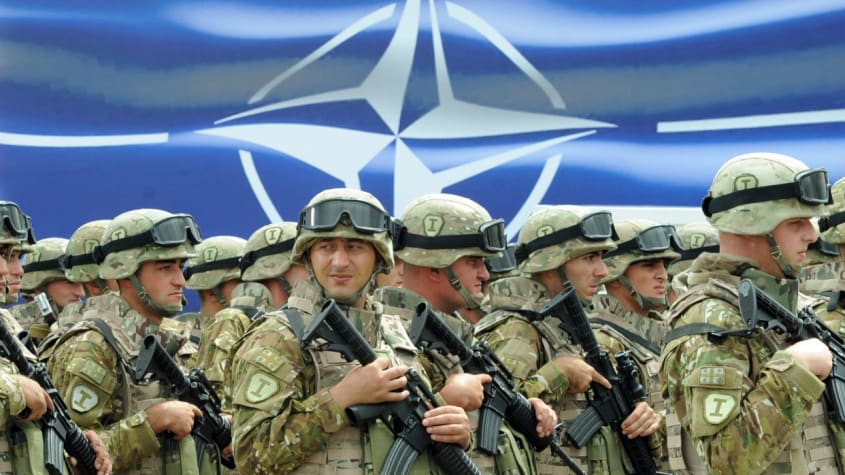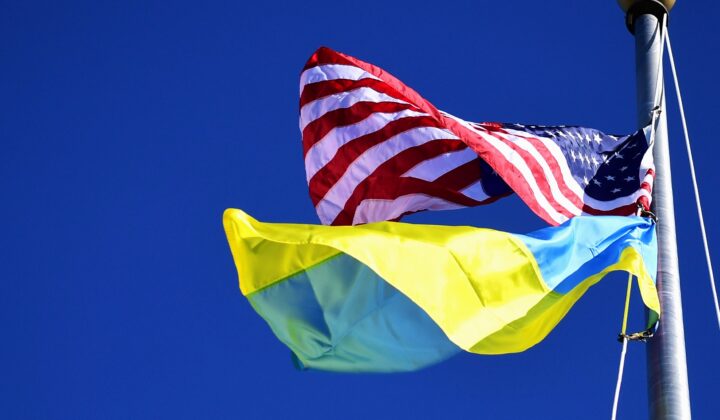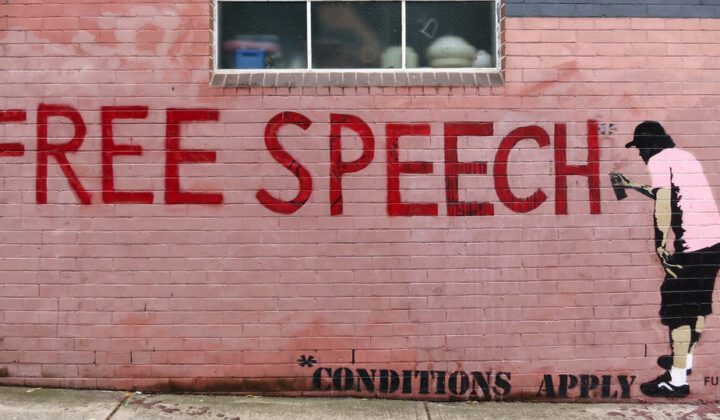Though it was by no means guaranteed, NATO survived the Trump presidency. As Ukraine faces another invasion from Russia, we can at least be thankful for that.
Even still, signs of trouble should be raising alarm bells. Despite Putin’s track record of aggression against Ukraine, Western governments were caught flat-footed when Russian troops began to mobilize on the border. European governments are following distinctly different policies from one another, and—worst of all—some on the American Right seem to be siding with Russia.
In times of crisis we can learn a lot about ourselves, and the crisis in eastern Ukraine is revealing a rot that runs to the core of Western alliances, democratic unity and political liberalism. It’s not too late to defend the Free World, but these threats could be existential if they aren’t addressed.
How is the Free World Divided?
If you had asked anyone after February 2014 where a war was most likely to break out in Europe, they probably would have told you eastern Ukraine. Russia entered and annexed Crimea in 2014, supported separatist movements along Ukraine’s eastern border with Russia, and repeatedly referred to Ukraine as something less than a real country. Nevertheless, when the crisis inevitably arrived a few months ago, we were unprepared and divided.
While NATO and the US negotiated with Russia, France lobbied for an alternative EU-based approach, still feeling scorned from the AUKUS debacle this fall. Britain is delivering arms to Ukraine, while flying a multiple-hour detour around Germany to avoid having to gain its approval for the flights—something it suspects Germany would refuse. Meanwhile, Germany blocked Estonia’s attempt to transfer German-made howitzers to Ukraine, citing a policy of appeasement and negotiation rather than armed deterrence. The US, for its part, approved a similar request from Estonia, Latvia, and Lithuania to move US-made weapons into Ukraine.
If you’ve been following our newsletter for a while, it might not surprise you that Germany is forging a path of maximum-appeasement. As we wrote when we implored Germany to halt construction of the Nord Stream 2 pipeline precisely because of how it would reduce Europe’s leverage and threaten Ukrainian security, Germany is uniquely naive about the Russian threat. Unlike essentially every other Western European country, Germany continues to believe that Russian money is politically neutral, Putin is a reasonable man to negotiate with, and something other than military deterrence could bring peace to Ukraine. The truth is that even short of military intervention, Europe has more leverage with respect to Russia than it seems to believe. Russia represents ~35% of European gas supply, but Europe represents over 60% of Russian gas exports. Which side needs the other more?
We wrote optimistically in December about how the new German foreign minister, Annalena Baerbock, could help Germany grow a spine. Unlike her predecessors, she has long acknowledged Nord Stream 2 to be a Russian political pawn and strongly discouraged its completion. But even she seems to have fallen into line, discouraging the harder stance much of Europe is taking.
While government policies differ, the public is divided over whether or not NATO obligations should even be respected. Most French citizens no longer believe that NATO plays an important role in European defense, and a majority of Germans say that the country should not defend a NATO ally against Russian aggression, something the treaty obligates the country to do. Unity is lacking, and Putin knows it. Meanwhile, a bit closer to home, some far-right Americans are siding against Ukraine.
How is the American Right Undermining Western Unity?
Tucker Carlson wondered on his show this week “Why is it disloyal to side with Russia but loyal to side with Ukraine?” In December he asserted that “NATO exists primarily to torment Vladimir Putin,” and that Putin “just wants to keep his western borders secure.” The most powerful man in media is trying to justify Russian aggression, and Fox News is picking up his talking points.
As bad as this is, Carlson’s flirtation with Eastern European strongmen isn’t restricted to Putin. This summer he went on vacation to the democratically-backsliding Hungary where would-be autocrat Viktor Orbán showed him around. He was particularly entranced with Hungary’s border policies, and watched as migrants were detained and sent back to the other side of the border without “further processing, or to meet with their attorneys or some Soros-funded NGO.” According to Carlson, Orbán’s policy can be summarized as: “This is a real country. We have laws.”
Immigration drives much of Carlson’s angst, and the Western world’s (albeit tepid) rallying around Ukraine has supercharged it. To Carlson, Western democracies’ concerns that Ukraine may be invaded by Russia is the peak of hypocrisy. Last week, Carlson lampooned the political establishment saying “Walls are racist. We’re a nation of immigrants. But the territorial integrity of Ukraine? That is something we must fight for.”
Carlson is going further to defend Putin and attack NATO than he has before, but his audience was primed by Trump. During his time as president, Trump disparaged NATO, attacked the EU, and cozied up to dictators around the world. He said that he and Kim Jong Un “fell in love,” called himself a “big fan” of Turkey’s Recep Erdoğan, and praised Xi Jingping as a “very good man.” There’s cause to think that this had real political effects. Hungarian strongman Viktor Orbán described Trump’s praise as “permission” from “the highest position in the world.”
The immediate implications of Trump’s actions were small: NATO persisted, our traditional allies remained our allies, and US aid to Ukraine continued. But while our formal relationships continue on, they’ve undoubtedly been weakened. Despite complete foresight into Putin’s ambitions in Ukraine, we still failed to properly prepare for them.
For Ukraine in 2022, our disunity might be the deciding factor between whether Putin is successfully deterred or the country descends into war. For the Free World, it must be a warning. Putin isn’t just threatening European security, he’s revealing the extent to which we’ve left ourselves vulnerable. NATO is old, but it is not outdated. Dictators continue to threaten global security, and the more they are given, the more they will take. Putin’s aggression toward Ukraine was not guaranteed—it was enabled by our own apparent inability to stand united.





